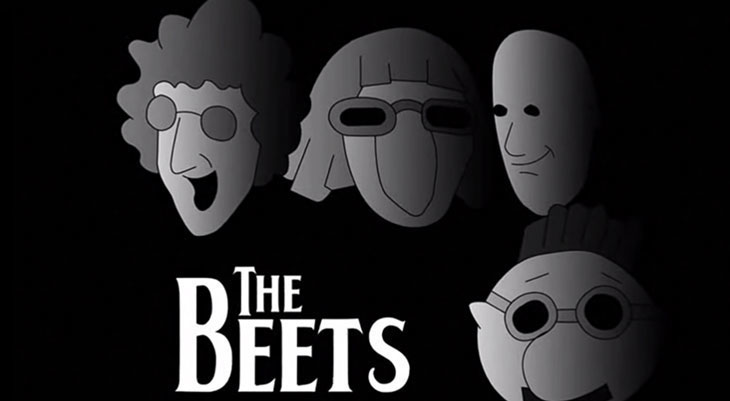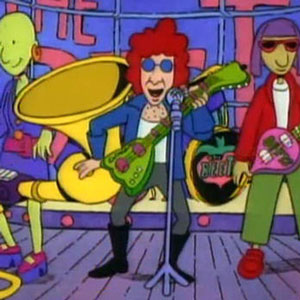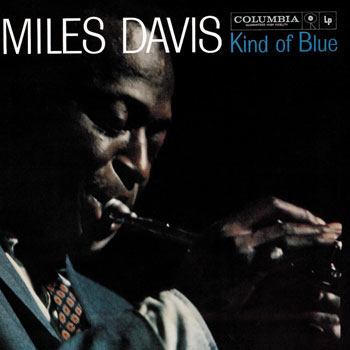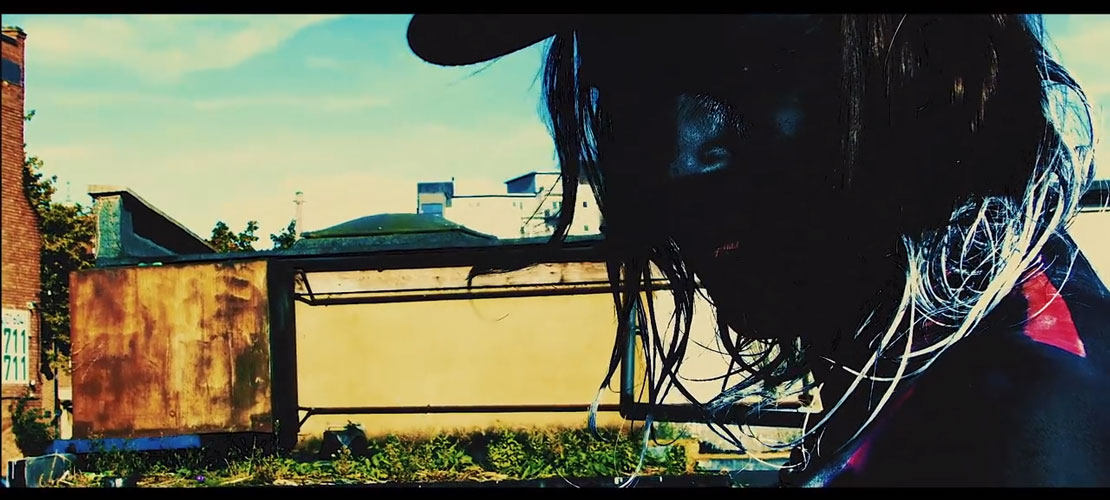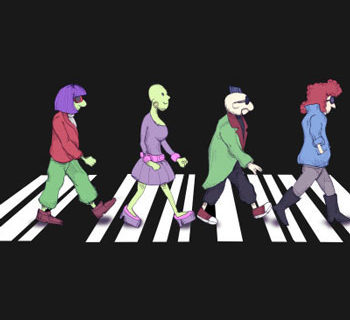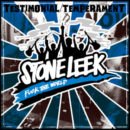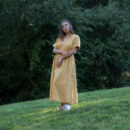So now, the band that would be The Beets, as we know them, had its four members. Chap, Monroe, Wendy, and Flounder were a quartet ready to rock Liverpool. Little did they know, they’d end up rocking the world.
Lipman: After Flounder joined, we were still The Pickled Beets for a little while. I think we maybe even played a show under that name. However, I felt there was too much bad vibes connected to that name. I wanted a change.
Flounder: Chap didn’t want us to be The Pickled Beets anymore, so I just said, “Why not just change it to The Beets?”
Nespah: Flounder had a way of thinking about things in a way that was so simple, but also so profound. I mean, who else would have thought to call out band The Beets?
Lipman: The name change also really inspired me to really get serious about the band. I didn’t want The Beets to be a pub band. I wanted us to be legitimate, moneymaking musicians. That’s why I got us out on the road.
Flounder: Chap didn’t want us to be The Pickled Beets anymore, so I just said, “Why not just change it to The Beets?”
Yoder: We toured all over the United Kingdom in a van, playing at shite clubs. It was hell, but it comes with the territory.
Nespah: Being on the road with three guys in a van wasn’t easy. Sometimes, I thought about quitting the band, maybe getting into decoupage professionally. I’m glad I didn’t give up, though.
Lipman: Then, one night in London, at some club I can’t even remember, we met Brian.
Yoder: The club was called Bananarama. The band Bananarama was just bubbling up in London at this time, too. I don’t know if they got their name from the club. Could have been parallel discovery. I don’t know.
Brian Horseshack (manager, The Beets): I was a young lad, just beginning my managing career. I was working with a couple rubbish bands that never went anywhere. One band, The Cuckolds, had one hit in the U.K, but that was it. I may have changed the lives of The Beets, but, in a way, they changed mine, too.
Lipman: We finish our show, and then all of a sudden this bloke in a suit comes up to me. He stood out like a sore thumb. He reaches out his hand and tells me, “I’m Brian Horseshack, and I want to be your manager.”
Yoder: We had never had a manager before. I mean, Flounder had, in his old band, but this was new for us. We didn’t know how legit Brian was, but we signed up right away. What did we have to lose? Our career wasn’t going anywhere.
Horseshack: I like The Beets’ sound, and they had a great look. They were one of the most unusual looking bands I had ever seen, but not in an offputting way. They were almost… cartoonish. They needed new songs, though.
Lipman: Right away, Brian told us we needed some new songs. He didn’t hear a hit. That’s something, as an artist, you bristle at, but that’s what Brian was for. He was the one who understood the business.
Nespah: Brian was able to get us a real practice space. We churned through song after song. I think we must of written 20 new songs.
Horseshack: I like The Beets’ sound, and they had a great look. They were one of the most unusual looking bands I had ever seen, but not in an offputting way. They were almost… cartoonish. They needed new songs, though.
Yoder: Chap was our main songwriter. Flounder chipped in a couple. Chap would try and dismiss those, but Brian wouldn’t let it happen.
Lipman: Eventually, Brian said we had enough for an album, and got us into a recording studio.
Flounder: That album was Meat the Beets. I wanted to call it Beet on the Brat, but Chap said we weren’t a punk band, and that would just confuse people. He was right on that one.
Yoder: We were all very excited when Meat the Beets came out. Of course, nobody gave a shit.
Lipman: We didn’t sell any copies of Meat the Beets until after we were famous. Only completists want it. I don’t even like it. It doesn’t sound like The Beets.
Horseshack: I’ll take the hit for Meat the Beets every day of the week. I pushed them into recording an album. I was excited, and I wanted to take them to the next level before they were ready. It was also the wrong studio, and the wrong producer, frankly. I wouldn’t make that mistake again.
Flounder: I know I’m supposed to tell you Meat the Beets is rubbish, but I like it.
John Anchovy (writer, NME): Meat the Beets is the best Beets album. It’s the only one that has an authentic sound.
Nespah: We didn’t even bother touring on Meat the Beets. We went right back to the studio to work on new songs. It was during that time that we stumbled onto “I Sneezed on My Face.”
Lipman: To this day, the fact that bloody, wretched joke of our song was our first No. 1 hit pisses me off.
Nespah: Chap will never say a good word about “I Sneezed on My Face,” even though it broke the band. And it’s because he didn’t write it. The fact it was Monroe’s song probably just made it worse.
Yoder: I barely ever wrote songs, and I Sneezed on My Face was a bit of a lark. I was just killing time during a recording break. Frankly, I don’t think the lyrics are great. It’s the instrumentation that made that song. It sounds fantastic. We owe that to Chap, honestly. And Jan, of course.
Horseshack: I took a few songs, including “I Sneezed on My Face,” over to Jan Martinelli, who was an absolutely aces producer and audio engineer. Of course, I don’t need to tell you that. We all know Jan’s work now.
Jan Martinelli (producer, Eclectic Audio): I knew Brian in passing, but we had never worked together. However, he was adamant about this new band he was managing called The Beets. I agreed to let him play me some stuff. I liked the first couple of songs, and then I heard “I Sneezed on My Face.” I immediately said, “That’s a hit,” and I agree to produce their album.
Flounder: Working with Jan was amazing. He captured our sound perfectly.
Lipman: Jan is a perfectionist, and that’s what I’ve always liked about him. He wouldn’t let our album be anything other than the best album it could be.
Horseshack: Honestly, naming the album was much more difficult than the recording process. We all knew it would be a great album. We just had no idea what to call it.
Horseshack: Honestly, naming the album was much more difficult than the recording process. We all knew it would be a great album. We just had no idea what to call it.
Yoder: Flounder refused to have another pun on “beet” in the title, which is a battle that he would lose repeatedly later in our run.
Lipman: We were really split on what to call the album. Monroe and me wanted to call it Turn Up the Beet, which I still think is a great name. Flounder and Wendy were tossing out rubbish like Xylophone Party. We didn’t even have a fucking xylophone in the band! That would have just confused people.
Nespah: We had finished the recording, but still couldn’t decide on a name. We may have never released the album had Brian not stepped in.
Horseshack: I had popped a few bennies the night prior, because I was going out clubbing with a new singer I had signed. I got home at about four in the morning and, naturally, couldn’t fall asleep. I just stared at the ceiling for what seemed like hours. Eventually, I just started talking to the ceiling. It was really that simple.
Flounder: Brian comes in one morning, looking like shit, and says, “Hey, how about calling the album Talking to the Ceiling?” We all thought it was brilliant.
Lipman: I didn’t love Talking to the Ceiling as a title, but I could live with it. With is fortunate, because I’ve been living with it for years.
Milton “Gator” Crocodile (DJ): I like to say I was the first guy to play “I Sneezed on My Face” on the radio. The label sent it over, and right away I was digging it. I thought it on immediately. I wish I could say that I had said The Beets were going to be the next big thing, but I wasn’t that prescient. I just wanted to play some good music.
Lipman: “I Sneezed on Your Face” because the No. 1 song in the United Kingdom. We had made it.
Nespah: When I heard we had the number one song in the U.K, I think I celebrated for two days straight. I remember Chap being infuriated he couldn’t get a hold of me. He wanted to get back to recording. There was no grace period for him.
Lipman: I wanted us to strike while the iron was hot. I knew we were going to be touring off the success of our album. That was going to put the kibosh on recording new music, and I did not want The Beets to be a one hit wonder. We weren’t going to be the bloody Starland Vocal Band. Not on my watch.
Horseshack: We were over the moon when “I Sneezed on Your Face” became a hit in the U.K. If anybody tells you they thought we’d make waves in America is a bloody lying wanker.
Yoder: I wasn’t surprised when “I Sneezed on Your Face” became a hit in America. Did I think we’d top the charts there, too? Nah, but if we were big in England, why not in America? The Brits have better taste in music, you know?
Lipman: Suddenly, we didn’t just need to tour the United Kingdom. Brian got us dates in America.
Flounder: If Chap were being truthful, he’d probably tell you he wishes The Beets never left the studio. He didn’t care about touring. He didn’t care about fame. Me? I had never been to America. I couldn’t wait to get over there. See the Statue of Liberty. Fuck some American birds. Have a proper cheeseburger. You know, American stuff.
Yoder: After every show on our American tour, me, Flounder, Wendy, and Brian would hit the town. Hard. Chap would just head back to the hotel to work on music. And we weren’t big stars yet, mind you. We weren’t staying in a nice hotel. We would be in, you know, Radissons and places like that.
Lipman: I was going to have fun once we had a second hit. Which, I might point out, we didn’t have on Talking to the Ceiling.
Horseshack: After “I Sneezed on Your Face” hit No. 1, we released “Party on Pluto” as the second single. It cracked the top 50, but couldn’t climb any higher. I don’t know if “Bus Stop Angel” even charted.
Nespah: We had more success than most bands ever have. I bought snake skin boots. I had made it, as far as I was concerned.
Yoder: We were the band of the moment, but Chap, and Brian, wanted us to be an all-time band. I was just a kid from the mean streets of Liverpool. I was just happy to have a roof over my head. And if that roof had an ornately gilded mirror on it, so much the better.
Lipman: After the Talking to Ceilings tour ended, I got us all back in Jan’s studio. I had written about 20 songs I thought were worth potentially putting on the next album.
Flounder: We got back into the studio, and Chap had done so much work already, there wasn’t much room for anybody else’s input. At least, not in Chap’s mind.
Horseshack: of the songs Chap came in with, I thought maybe seven were really worth putting on an album. There were other good songs, don’t get me wrong, but they were experimental. The Beets weren’t an experimental band. They were rock and roll, pure and simple.
Martinelli: The band started putting together the instrumentation for a few of the songs for what would become Rubber Ball. I like to think I have a good ear for music, and “Shout Your Lungs Out” just blew my doors off.
Lipman: “Shout Your Lungs Out” is a pretty by the books rocker. I almost felt cheap writing such a simple song, but I knew it would be a hit. It was our KISS song, basically. And everybody loves KISS even though every bloody song sounds the fucking same!
Yoder: I loved “Shout Your Lungs Out.” We all did. I didn’t love not getting a chance to write any songs for the album. Rubber Ball was all Chap. I had written our first No. 1 hit, and it was like “I Sneezed on My Face” never even happened. My song put an extra story on Chap’s house, and this was how he repaid me.
Lipman: People may complain that I exerted too much control on Rubber Ball, but they can cry all the way to the bank as far as I’m concerned.
Martinelli: In my personal opinion, Rubber Ball is the best album I ever worked on. And I worked on Marcy Playground’s second album.
Horseshack: “Should Your Lungs Out” was another No. 1. It stayed atop the Billboard charts all summer. The Beets had the bloody song of the summer in the states! This was also, mind you, when albums actually sold. Not like today. Rubber Ball went platinum two times over.
Lipman: We weren’t one hit wonders. We were the fucking biggest rock band on the planet.
Flounder: I spent my entire childhood playing in punk bands and metal bands. To be in the world’s biggest band was a shocker.
Yoder: We were all super famous, and super rich.
Martinelli: Even I became a minor celebrity after the success of Rubber Ball. Everybody wanted to work with me. Everybody wanted to get that Beets sound.
Lipman: Rubber Ball completely changed our lives, but it was also, I would argue, the beginning of the end for The Beets. We had a few more albums, and a bunch more hits, in our future, but the groundwork was laid here.
Horseshack: A lot of people don’t remember the Beats Me era of the band, but it wasn’t a good time for anybody, myself included.
Lipman: The Rubber Ball tour was a nightmare. The stress was killing me, and my body just shut down. All I wanted to do was work on the new record, and I couldn’t.
Yoder: After Rubber Ball is when I got married. That basically took me out of the loop for the buildup to Beats Me.
Candy Newmar (Ex-wife of Monroe Yoder): As told to Rolling Stone in 1990 – I met Monroe in London during the Rubber Ball tour. I was working as the publicist for the band that opened for them on that tour, Tiger Spots, so we kept running into each other. I was a big fan of The Beets, like everybody was at the time, and I told him how much I liked his singing. I suppose it was inevitable we’d end up together.
Yoder: Candy was a beautiful woman, and I was ready to settle down. I may have rushed into it. She was a great girl, and she still is. The marriage didn’t work, but that was my fault. During the run up to Beats Me, though, we were on cloud nine.
Newmar: As told to Rolling Stone in 1990 – Some people say, “Oh, you took Monroe away from recording with The Beets,” but that’s not true. Frankly, we both needed some time off from things.
Flounder: Just before we were going to start working on the follow up to Rubber Ball, we found out about Chap’s gallbladder issues.
Lipman: My gallbladder just quit on me. I had to go have surgery. I was just pushing myself too hard. I was pissed. That took me out of the loop for Beats Me. Monroe was with Candy. And as for Wendy… I think only she could tell you what happened with her, and maybe even she couldn’t tell you.
Nespah: You know, after Rubber Ball, I got into a… kind of spiritual place. I went down to South America and took ayahuasca. And this was back in the day before it was the trendy thing to do. It’s supposed to really help you reach another plane of consciousness, but I just got violently ill. I was down there for, like, a month though. Nobody could get a hold of me. I wasn’t really interested in being a Beet at that time.
Horseshack: Beets Me ended up becoming a bit of a Flounder solo album, almost.
Flounder: With all the other Beets out of commission, I was left to me own devices. Of the 12 songs on Beets Me, I think, um, 10 of them are mine? Chap still managed to get a couple songs on there. He was calling me from the hospital, trying to get his thoughts across. The album is called Beets Me as a little shoutout to Chap. I let him have his pun title. I figured it was the least I could do.
Lipman: Eventually, I got out of the hospital, Monroe got back from his honeymoon, and Wendy got back from wherever the bloody fuck she was. Unfortunately, Flounder had basically laid out the full album, and we didn’t have to really rework things.
Flounder: Beets Me has a slightly different sound, because I had to bring in musicians to, you know, help me put it together. Alex James from Blur actually helped out a bit.
Horseshack: Beets Me was a hit, because The Beets could have put anything out around then and had it be a hit, but it’s really a love it or hate it type album.
Flounder: I love Beets Me, obviously, but I would wager nobody else in the band would say that.
Nespah: Honestly, I couldn’t tell you a single song off of Beets Me. We didn’t tour after that album. Sh*t was just too weird for all of us.
Yoder: Beets Me was a rough patch, but, of course, “Killer Tofu” was right around the corner. The bad times didn’t last.
Lipman: After I recuperated from my gallbladder surgery, and after Beets Me was behind us, I couldn’t wait to get back to work.
Nespah: Honestly, I couldn’t tell you a single song off of Beets Me. We didn’t tour after that album. Sh*t was just too weird for all of us.
Yoder: Everybody brought songs in for the next album. I think we all kind of felt bad for not being a part of the Beets Me process, save for Flounder.
Lipman: I had written a few songs already, but I had this chorus rolling around in my head. It didn’t have words, though. I just hummed it over and over. One night, I was going through my fridge, and I found some old tofu. I just love the way that word sounds. Then, suddenly, “killer tofu” just clicked in my head. I sat right down and wrote the song.
Flounder: When Chap brought in “Killer Tofu,” I was hesitant. I mean, it’s a song called “Killer Tofu.” Then we ran through the song a couple times. I was on board from that point on.
Andrew Unterberger (writer, SPIN): “Killer Tofu” is basically The Beets’ Pavement song. You don’t necessarily expect the world’s biggest rock band to have much in common with an indie darling, and Stephen Malkmus would probably hate the comparison, but it works. “Killer Tofu,” when you boil it down, is nonsense, but it’s wonderful nonsense. Lipman just took a bunch of words that sound good together, and created one of the iconic rock songs of his era, and arguably all-time.
Horseshack: Obviously, we’re going to talk about “Killer Tofu.” It’s The Beets’ “Free Bird.” But I feel, sometimes, it overshadows The Fuchsia Album as a whole. It’s not just “Killer Tofu.”
Lipman: We couldn’t agree on an album title, so we just went with a self-titled one. We hadn’t done that yet. We were entitled.
Yoder: Frankly, we just didn’t want to spend 10 hours arguing over another album title.
Martinelli: It came to be known as The Fuchsia Album on account of the cover art’s primary color.
Lipman: We were iconic. We could sell a billion albums on the strength of our name alone.
Horseshack: The album’s got “Sardines.” It’s got “Bob Paisley.” It’s got “We’ve Got a Home (But We Ain’t Got No House.” That album is all killer, no filler. But, of course, the power of “Killer Tofu” can’t be overstated.
Anchovy: When we named the 90 best songs of the ‘90s, “Killer Tofu” came in at 12. A lot of people think we underrated it.
Martinelli: To me, “Killer Tofu” is the song of the ‘90s.
Yoder: “Killer Tofu” is one of the best-selling singles of all-time.
Lipman: When I die, my tombstone is going to say, “He wrote ‘Killer Tofu’.” And I’m OK with that.
Flounder: “Killer Tofu” was great, and The Fuchsia Album sold amazingly. We were touring stadiums and arenas. We played at the bloody Orlando Arena, home of the Orlando Magic! And yet, there was the inevitable feeling that we had reached our peak.
Lipman: As harsh as it is to say, few bands have a second “Killer Tofu.” I would have never said that then, but I can say it now. Even Nirvana couldn’t quite duplicate “Smells Like Teen Spirit,” and, in many ways, we are like Nirvana.
Nespah: “Killer Tofu” was nominated for Record of the Year, and The Fuchsia Album got an Album of the Year, nom, but we couldn’t win. We did take home a Brit Award, but that just doesn’t have the same weight to it, even as a Brit.
Horseshack: The Beets needed to follow up a critical and commercial darling, which can be hard, especially for a band that like The Beets who, for all their success, never felt wholly cohesive.
Lipman: After The Fuchsia Album, I was kind of burnt out on being popular, if that makes sense. I know it makes me sound like a fucking sod, but it’s the truth. I really wanted The Beets to take another direction on our next album.
Nespah: I was doing a fair amount of drugs at the time, so when Chap said we were going to make an experimental album, I was all in. I think only Monroe felt iffy about it.
Horseshack: The band came to me and said the new album was going to have a totally different sound. We were making money hand over fist, so I let them have their little experimental album. I figured it couldn’t hurt. I, uh, underestimated just how weird the album was going to get.
Martinelli: I’m not a producer that pushes back too much. I like to let the artists control the sound. It’s their music, after all. That being said, I wish I had pushed back on The Ravaging of Freyja, though.
Lipman: I’ll take credit, or blame, for the album title. Freyja is the Norse goddess of love and beauty, but also of war and death. That just real spoke to me at the time, you know?
Flounder: Chap was being a pretentious twit. I wish I had just taken a minute to say, “Come off it, mate. You’re full of shit.” Nobody wanted a Beets album called The Ravaging of Freyja. And those who did, got an album that sounded insane.
Yoder: I wish we had changed our band name for The Ravaging of Freyja. We could have said, “This is an entirely different project. It’s not The Beets. We’ll get back to ‘Killer Tofu’ later.”
Martinelli: I’ve worked on a lot of albums. I don’t know how to put that one into words.
Alex Pappademas (writer, MTV): The Ravaging of Freyja is basically The Beets’ Metal Machine Music, but they aren’t Lou Reed, so nobody was going to put up with that shit from them.
Horseshack: The album sold well the first couple of weeks, because it was a new Beets album. People didn’t know what they were going to get. Then they got it, and the word of mouth was just awful.
Nespah: People hate Freyja. I hate Freyja. We flushed all our goodwill down the toilet.
Lipman: Needless to say, we weren’t going to make another experimental album. We tried to go on what was, essentially, an apology tour. However, the response to The Ravaging of Freyja was so bad, we barely sold any tickets. It was a bloody nightmare.
Yoder: We all basically agreed we needed to get back into the studio and make a Beets album that, well, sounded like a Beets album.
Flounder: I almost quit the band right there, but I didn’t want that to be my final Beets album. Honestly, had I left the band after Freyja, it would have probably been my last album, period. I would have been toxic.
Lipman: All our new songs had a friendly sound, and positive lyrics. I think we may have overcorrected, but that’s the kind of stuff we were putting out.
Flounder: I wrote “I Need Mo’ Allowance,” and it got pushback, I remember. Mostly from Chap.
Lipman: We were bloody adults! I didn’t want us singing a song about needing more allowance. It seemed fucking ridiculous. Kids buy albums, though. I begrudgingly allowed it into our repertoire.
Flounder: I almost quit the band right there, but I didn’t want that to be my final Beets album. Honestly, had I left the band after Freyja, it would have probably been my last album, period. I would have been toxic.
Horseshack: Because of the sparse turnout for the apology tour, I suggested we do something a little more grassroots. Playing small shows for true fans and what have you. Bring along some of the new songs to let people know that The Beets they loved still existed. Give them a chance to hear some cool new tunes, and “Killer Tofu,” and hope we could maybe sell some albums again.
Lipman: We got invited to play at a school in Bluffington. My first thought was, “Bloody hell! We were the biggest rock band in a world.” But I realized it would be good P.R, you know? I certainly didn’t expect it would end up influencing our sound.
Cornelius Rustbucket (singer, Bluffington Yodelers): I was a member of the Bluffington Yodelers with Lamar Bone. When he found out that there was going to be a rock concert at his school, he was having none of it. Lamar was very old-fashioned like that. Then, next thing I knew, we were being asked to open for this band called The Beets. I had never heard of them, but I was just glad to have a gig. Apparently, Lamar had agreed to let the band play if we could open for them. It was a real thrill
(Editor’s Note: Lamar Bone passed away in 2014)
Yoder: So there we were, playing at a school, and here’s these middle-aged sods in lederhosen. And they are bloody yodeling! I thought we were finished. I thought the kids would walk away and not bother waiting for us. Then, I started thinking about how to fit yodeling into “I Need Mo’ Allowance.”
Lipman: We had felt something was missing from “I Need Mo’ Allowance.” I didn’t think it would be yodeling, but the way Monroe explained it, it worked.
Nespah: It was really all that different than music these days where they sing “Hey!” and “Ho!” We were just yodeling instead. And it sounded great.
Flounder: The kids loved it, so we knew we were onto something. And the tour did help us reconnect with our audience, and it maybe curbed our egos a bit. Not that it lasted very long.
Lipman: I’m the one who decided to call the album We’re Back! It just made sense. I didn’t have any pushback from it.
Horseshack: The Beets were back. I mean, they didn’t go anywhere, but people certainly seemed to wish they had. So this was the band’s way of saying The Beets sounded like, you know, The Beets.
Yoder: “I Need Mo’ Allowance” cracked the top 10. The album went gold. We had dug too deep a hole to reach our old level of success, but people didn’t hate us, so that was nice.
Flounder: We’re Back! could have been the start of a Beets renaissance. But… well, we all know what happened.

